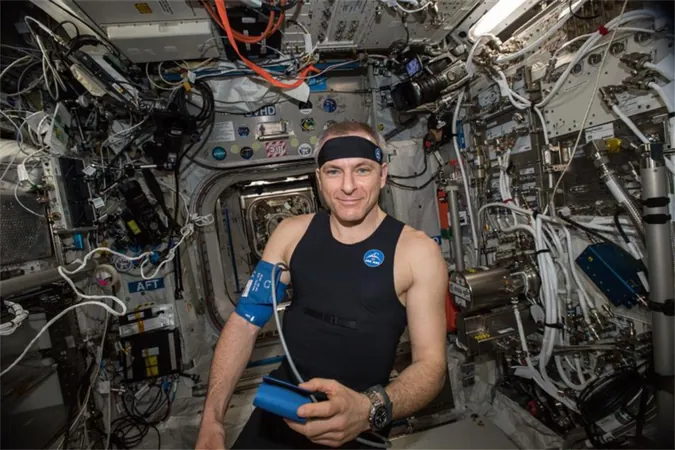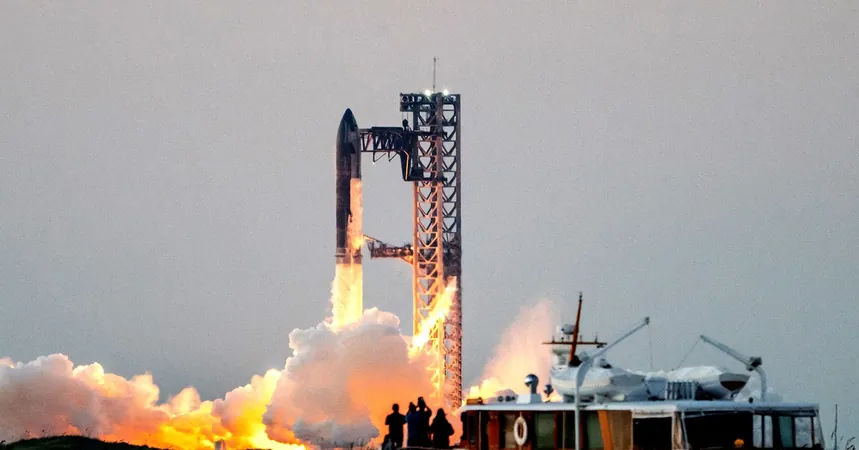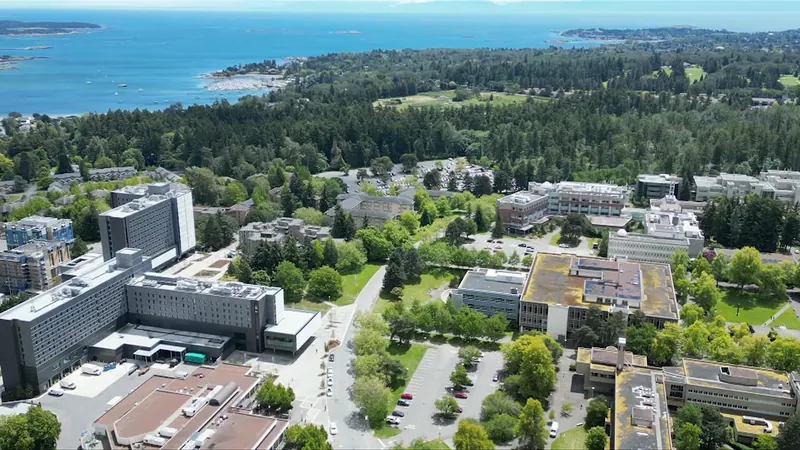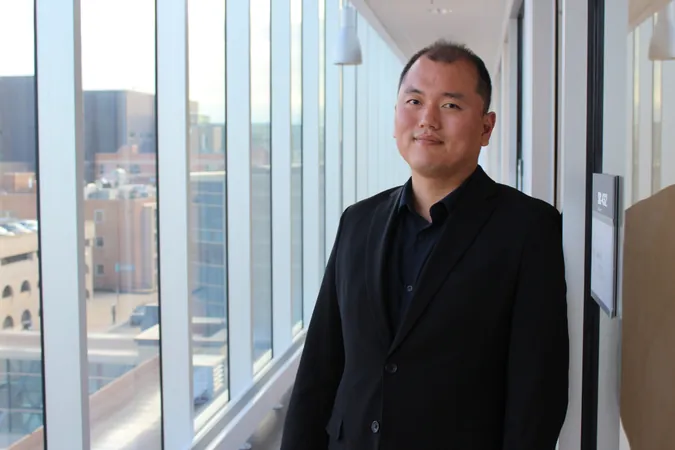
Groundbreaking Research Unveils How Zero Gravity Transforms the Human Body
2024-09-26
Author: Sophie
Groundbreaking Research Unveils How Zero Gravity Transforms the Human Body
In an exciting exploration of the final frontier, Dr. Andrew Blaber, a professor of biomedical physiology and kinesiology at Simon Fraser University, is spearheading a vital research project on the International Space Station (ISS). The project, known as CARDIOBREATH, employs cutting-edge smart shirt technology called the Bio Monitor to monitor the physiological effects of long-term space travel on astronauts.
Unmasking the Body’s Adaptation to Microgravity
As Dr. Blaber points out, human bodies are intrinsically designed for Earth's gravity, and exposure to the weightlessness of space triggers significant changes. For instance, when astronauts enter a microgravity environment, the volume of bodily fluids decreases, resulting in lower blood pressure compared to their Earthbound state. "Our physiology is a complex system that adjusts to various conditions; however, in space, the process is unique and multifaceted," Dr. Blaber observed.
In a weightless environment, the body’s typical gravitational pull, which keeps most blood circulation concentrated in the lower extremities, is disrupted. As a result, fluid collects in the upper body, causing astronauts' faces to appear puffier and rounder. Furthermore, the kidneys increase their workload to expel excess fluid, leading to other potential health complications, including swelling of the optic nerve—a condition that may permanently alter vision if prolonged.
Innovative Solutions for Astronauts’ Health
Thanks to support from the Canadian Space Agency, CARDIOBREATH aims to uncover strategies to safeguard astronauts' blood pressure regulation during their missions. “Understanding the interaction of the cardiovascular and respiratory systems under these unique conditions is crucial for maintaining astronauts’ well-being,” Dr. Blaber explained.
This research also seeks to illuminate differences in individual responses to microgravity among astronauts, helping to tailor preventive strategies. According to Dr. Blaber, the data collected may offer insights into how to support those who encounter challenges after returning to Earth.
The Mechanics of Zero Gravity: A Comparison of Systems
The Bio Monitor technology plays a pivotal role in monitoring vital signs, facilitating research that informs exercise regimens aimed at counteracting muscle and bone loss astronauts experience in microgravity. Dr. Blaber emphasized the gravity-altering aspect of their research. "For thousands of years, we've understood human physiology under Earth's gravity, so this experiment provides a unique opportunity to analyze the effects of its absence," he noted.
Through the Bio Monitor, researchers gather comprehensive data on heart rate, blood pressure, and breathing, among other parameters. This multifaceted approach allows scientists to analyze the interplay between various bodily systems, revealing how microgravity alters these critical functions.
The Future of Space Exploration and Its Implications
As the landscape of space travel evolves with more private enterprises entering the field, the demographics of astronauts are also expanding. This raises new questions about the potential risks and effects on individuals who may not fit the traditional mold of elite fitness and training.
With missions to Mars and extended stays on the moon in view, researchers like Dr. Blaber strive to enhance safety protocols and address the physiological challenges posed by prolonged exposure to low-gravity environments. "Addressing how adapted human bodies can maintain health in these conditions is becoming increasingly pertinent," he stated.
Importantly, the insights gleaned from the health of astronauts can also be beneficial in understanding and mitigating issues associated with aging, couch-bound lifestyles, and rehabilitation for patients confined to bed rest for extended periods. "Ultimately, every detail we uncover contributes to broader applications for health care," noted Dr. Blaber.
As the final frontier beckons and the quest to unlock the mysteries of space continues, scientists and researchers are paving the way to ensure that humanity can thrive beyond Earth in the coming years.









 Brasil (PT)
Brasil (PT)
 Canada (EN)
Canada (EN)
 Chile (ES)
Chile (ES)
 España (ES)
España (ES)
 France (FR)
France (FR)
 Hong Kong (EN)
Hong Kong (EN)
 Italia (IT)
Italia (IT)
 日本 (JA)
日本 (JA)
 Magyarország (HU)
Magyarország (HU)
 Norge (NO)
Norge (NO)
 Polska (PL)
Polska (PL)
 Schweiz (DE)
Schweiz (DE)
 Singapore (EN)
Singapore (EN)
 Sverige (SV)
Sverige (SV)
 Suomi (FI)
Suomi (FI)
 Türkiye (TR)
Türkiye (TR)